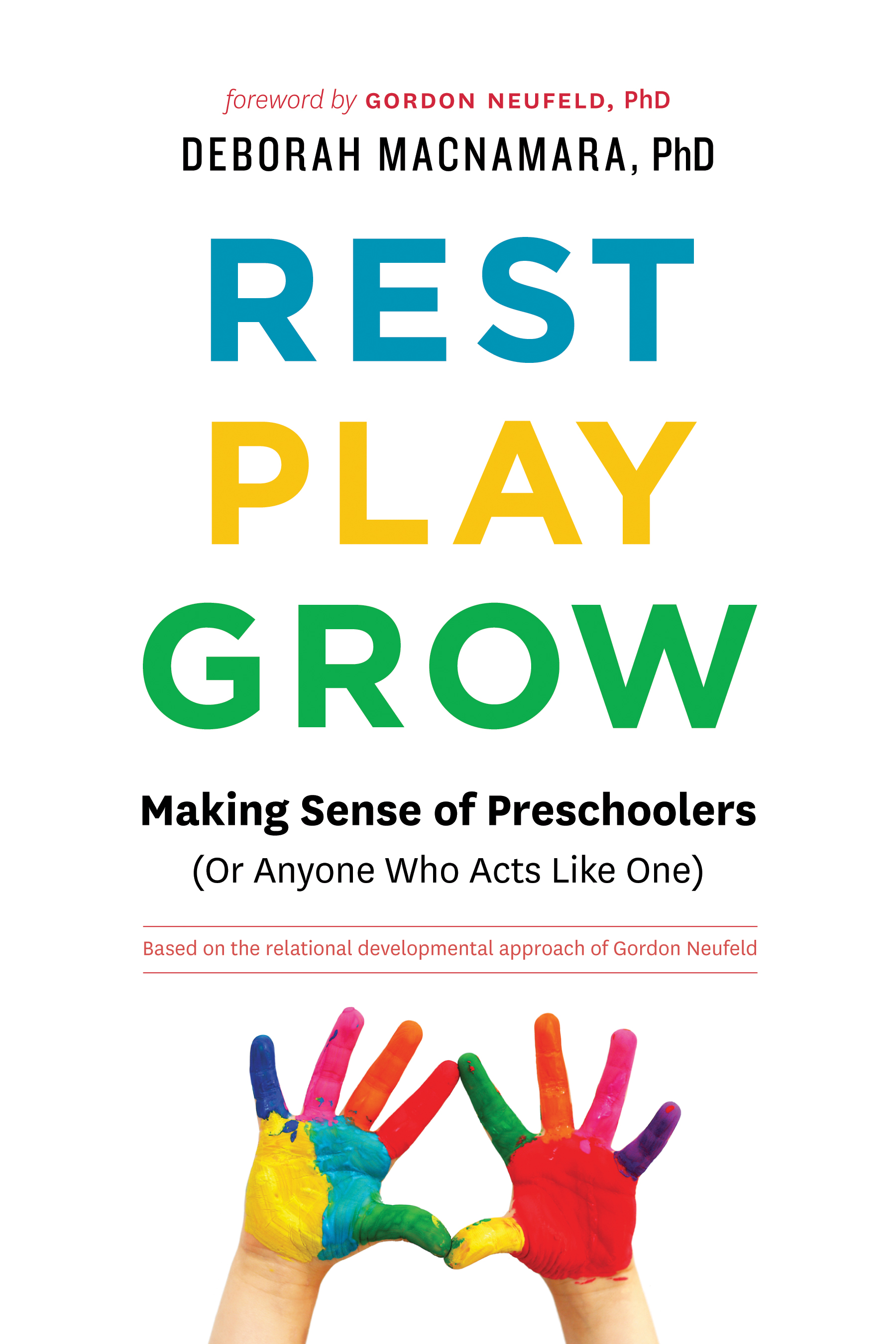Why Kids Resist and What We Can Do About It
If there is one thing you can count on when you are a parent is that your child will be resistant and oppositional at some point. For example, Sam is a ten year old who rolls his eyes when told to lay the table and help with dinner. Meghan is a seven year old who erupts in verbal attack when told to clean up her room. Sara is a four year old who has decided she can dress herself and doesn’t want help as she empties her closet full of clothes. Felix is a three year old who was sent for a hearing test due to a lack of listening but his parents were told he was fine and it was a case of not obeying. The common thread between all of these children is one of resistance and opposition with their parents often infuriated in the wake of it.
What is not well understood is why do kids resist in the first place? It stems from a human instinct called counterwill first coined by a student of Freud’s named Otto Rank. The counterwill instinct is naturally activated when a child feels coerced or controlled by others. It is the reason why they slow down when you tell them to speed up or why they do the opposite of what they are told. The more you tell them not to use potty language – the more they seem to want to use these words.
One might think nature is playing a cruel joke on parents to program them with this instinct but it actually serves an important function. Kids are only supposed to follow and obey the people they are attached to. In other words, they were meant to be ‘bossed around’ only by the people that are responsible for them. This comes in handy when a stranger tries to tell them what to do but the question remains as to why they routinely resist their parents directions?
A young child is usually resistant as a result of not being attached to a parent in the moment when a direction was given. Young children only have the capacity to attend to one thing at a time and if they are focused on something else, their parent has little ability to engage their instincts to follow. In fact, if you ask a young child to do something without engaging their attachment instincts, then expect to be resisted. The only thing that trumps the counterwill instinct is that of the attachment instinct. That is, when a child is connected to a parent, the instinct to follow them is stronger than their instinct to resist. The key to dealing with resistance in a young child is to engage their attachment instincts by collecting them before requests are made. This could be done by coming to the child’s side and focusing on what they are doing for a moment and trying to collect their eyes, a smile, and a nod before proceeding to give orders.
With older children we often forget they still need to be collected routinely before we tell them what to do. The counterwill instinct actually helps grow a separate self that forms one’s own ideas, preferences, wants, wishes, and desires. As my friend said to me once, “when I was three my Mom and I got along, as soon as I got my own mind my Mom and I had troubles.” Kids will have different agendas from their parents and this is to be expected. What is important is how we preserve the child’s dignity as well as ours in the face of disagreement. The more we push, the more they will resist. The more they resist, the more we will want to push. Counterwill in both parent and child can escalate until a big eruption happens or a child just capitulates in order to preserve the relationship with their parent. This will be a sacrifice play on the part of the child and is done to preserve a parent/child relationship but leads to other problems. If counterwill and resistance is chronic and does not ebb and flow, it could be indicative of a more systemic relational issue with a parent such as a dominance problem or peer orientation.
Dealing with Resistance and Opposition
 There are a number of strategies that are helpful in dealing with the resistance and opposition in kids of any age. It would be next to impossible to never provoke this instinct in raising a child but the main objective is not to let your relationship suffer in the face of it. Here are a few simple but effective ways parents can steer through these battles as well as side step them, more is discussed on counterwill in Chapter 9 of Rest, Play, Grow: Making Sense of Preschoolers (or anyone who acts likes one).
There are a number of strategies that are helpful in dealing with the resistance and opposition in kids of any age. It would be next to impossible to never provoke this instinct in raising a child but the main objective is not to let your relationship suffer in the face of it. Here are a few simple but effective ways parents can steer through these battles as well as side step them, more is discussed on counterwill in Chapter 9 of Rest, Play, Grow: Making Sense of Preschoolers (or anyone who acts likes one).
1. Don’t parent cold – collect the attachment instincts before directing them – If counterwill is meant to protect against outside influence and direction then parents need to be on the inside of the relationship in order to get a child to acquiesce and to follow directions. Before giving a child instructions, a parent can move into their space and engage with them in a friendly way. When they feel the child is receptive they can convey what they would like them to do. While it may sound simple, collecting a child is a good way to not only build a relationship but preserve it in the face of counterwill. For example, if you want a child to help you clean up toys, collect them before you direct them in order to elicit their agreement without a battle.
2. Expect resistance and make room for it – When counterwill has been provoked, one can simply acknowledge it and proceed forward without increasing coercion. You could acknowledge that no one likes to be bossed around and then reaffirm what needs to happen, for example – “I know you don’t like me telling you to make your bed, it still needs to be made though.” It may also be a good idea to sidestep the battle temporarily without giving up the lead, telling them you will talk to them about later – which could be just a few minutes later with a young child.
The more immature a child is, the more likely they will operate out of the counterwill instinct. From a developmental perspective, expect it to be in full force in both preschooler and teenage years. These periods both involve time to develop as a separate person so the views of others are naturally resisted to make space for the child to have their own.
3. Cultivate routines and structure for the child to attach to – Setting up a daily structure is helpful as a child will feel less coerced and controlled once they attach to the routine. I used to watch my daughter’s preschool teacher get 20 children to clean up their toys by singing them a simple song each day. When you don’t have time to actively collect a child, then put a routine in place to collect their attention and direct them accordingly. Routines are helpful around transition times such as going to school, doing homework, and getting ready for bed.
4. Put them in charge wherever appropriate – Sometimes the best way to avoid battles and court a child’s desire to ‘do it myself’ is to put them in charge of things that are developmentally appropriate. They may want to dress themselves, choose what books they read, or toys they play with as a means of self-expression. It would be important not to put them in charge of decisions about food or anything to do with separation or attachment with you as this relates to caretaking, which is the parent’s role.
5. Repair fallout from counterwill battles – If you have had counterwill battles between you and your child, a simple repair and acknowledgement may be needed. When tempers have cooled, an apology by the parent is helpful in conveying the relationship is intact and you will continue to care for them.
The more a parent takes their job seriously, the more likely they will be upset by signs of resistance and opposition in their child. If you can see their resistance as stemming from the counterwill instinct it may help in not taking things so personal. The instinct to resist and oppose is in all of us and has important work to do in making sure we stay close to those we are attached to. Counterwill also paves the way for a child to grow as a separate person and when they are 20 years old, you will be at last grateful for the fruits that appear from this place.
Copyright 2016 Deborah MacNamara, PhD
 Deborah MacNamara, PhD, is on faculty at the Neufeld Institute and in private practice working with parent of children and teens. She is the author of Rest, Play, Grow: Making Sense of Preschoolers (or anyone who acts like one). All work is based on the relational and developmental approach of Gordon Neufeld, PhD, please see www.macnamara.ca for more information or www.neufeldinstitute.org.
Deborah MacNamara, PhD, is on faculty at the Neufeld Institute and in private practice working with parent of children and teens. She is the author of Rest, Play, Grow: Making Sense of Preschoolers (or anyone who acts like one). All work is based on the relational and developmental approach of Gordon Neufeld, PhD, please see www.macnamara.ca for more information or www.neufeldinstitute.org.






